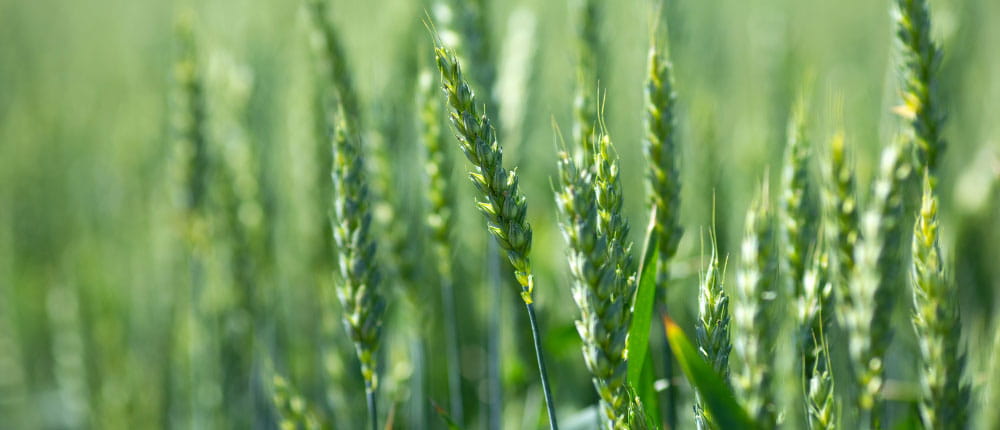There are a multitude of pathogens than can damage seedlings before they have a chance to develop, which can stunt growth or even kill the plant. This makes it essential for growers to scout fields regularly and identify any diseases early. Some of the top winter wheat diseases to watch for are tan spot, powdery mildew, leaf rust, stripe rust and fusarium head blight.
Tan spot is one of the most common diseases found in winter wheat. It can infect the plant at any growth stage and causes tan-colored lesions with dark brown centers and yellow halos on the leaves. Tan spot can reduce yields especially when it affects the upper canopy leaves and thrives in wet conditions.
Another fungal disease that can affect winter wheat early in the season is powdery mildew. This disease can be identified by the white, branching root structure that appears on the leaf surface or the lower parts of the stem. This can cover the entire leaf surface reducing photosynthesis and grain filling. Powdery mildew is more common in fields with dense growth and higher moisture.
Warm humid conditions are most favorable for the growth of leaf rust, stripe rust and Fusarium head blight. They all can cause significant yield losses if left uncontrolled. Leaf rust and stripe rust produce distinctive orange or yellow pustules on the leaves and stems of wheat plants, which can reduce photosynthesis and grain filling. Fusarium head blight causes bleaching and shriveling of the spikelet, which can damage the quality and yield. Fusarium head blight also can produce mycotoxins that are harmful to humans and animals.
While identifying these diseases early is key, it’s also important to have a plan to control disease pressures before they have a chance to take hold. One of the best ways to prevent or reduce the impact of these diseases is to use customized seed treatments for winter wheat.
Customized seed treatments are tailored to the specific needs of each grower, based on the type of wheat, the region, the soil conditions, the pest pressures, and the desired outcomes. These treatments can provide protection for the seed and seedlings against disease and insect pressure from the moment they are planted. They can also enhance germination, emergence, root development, plant health, stress tolerance, nutrient uptake and yield potential.
CHS offers STI Customized, a custom-blending seed treatment service that enables retailers to offer custom-blended seed treatments for the customers. STI Customized uses some of the most proven products, along with the latest chemistries. CHS Agronomy blending sites allow their ag retailers to choose from over 350 custom blends or create a completely new and unique blend for their specific needs. By providing options for growers and retailers, CHS Agronomy can help customers create the most diverse and customized blended seed treatment that works for their specific needs.
For more information about STI Customized and other packaged seed treatments contact your CHS agronomy sales representative.

Diseases to watch for in winter wheat
Winter wheat can be susceptible to various diseases that can reduce yields, quality and ultimately, profitability.
Jul 3, 2024
Related news and stories

Seed treatments
26 Nov 2025
Strengthen early crop development with Abivium™, designed to support uniform stands and reliable season-long growth.

Seed treatments
27 Mar 2025
New nutritional seed lubricant protects and enhances early plant growth.



